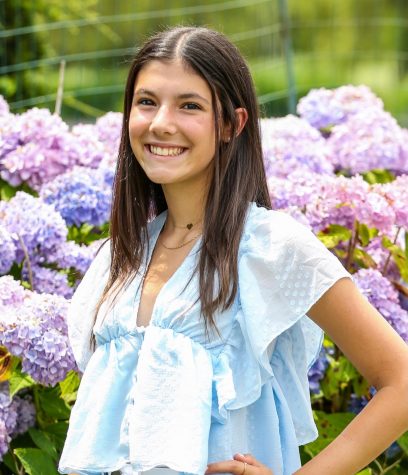Pink Day: A Valuable Ramaz Tradition
On October 24th, the students of Ramaz plastered the halls in pink as a tribute to breast cancer awareness month. The students excitedly dressed in pink, decorated the lobby in pink, and sold pink doughnuts as they were educated about breast cancer awareness and actively participated in fundraising. Over one thousand dollars were raised by the high school for Sharsheret, a Jewish organization devoted to helping women with breast cancer. Additionally, students heard from Dr. Nicole Agus, representing JScreen, an organization that gives free BRCA testing to all eligible Ashkenazi women and post-test counseling to help them understand their results.
The Susan Komen Foundation was established by Nancy Goodman Brinker in memory of her sister Susan that passed away at 36 after battling breast cancer for three years. Nancy promised her sister that she would do everything to end breast cancer and believed that Susan’s outcome could have been better if she was educated about breast cancer and its treatments. In 1984, Nancy founded the Susan G. Komen Breast Cancer Foundation in her sister’s memory. The Komen Breast Cancer Foundation’s logo is a pink ribbon, resembling a runner in motion and reflecting the importance of Komen’s Race for the Cure every October.
Sharsheret focuses on the whole affected family, provides support specific to orthodox needs, and even cooks Shabbat meals. Breast cancer is particularly prevalent in the Ashkenazi Jewish population due to the BRCA mutation. As high as 1 in 40 Ashkenazi Jews is BRCA positive and this can increase the lifetime risk of breast cancer to almost 60%. In addition to treatments and support, this organization educates women about the options for breast cancer screening and genetic testing. This information is powerful since increased surveillance can often catch cancers early while they are still treatable.
Ramaz Upper School began commemorating breast cancer awareness and Pink Day in the year 2000; Tzipi Caton was the first speaker who visited the students. Caton spoke about her journey as a cancer survivor diagnosed at age 16. Years later, Caton married the Jewish man who drove her to her treatments and wrote a book about her experience as a survivor. The Pink Day programming began primarily focusing on breast cancer awareness and prevention, rather than personal experiences with breast cancer. Students were later introduced to Sharsheret, and many participated in the walks.
This year, Dr. Agus, a neuroscientist who researches the BRCA gene, spoke to the seniors and educated them about the research done to identify the BRCA gene. Dr. Agus reinforced to the students the autosomal dominant inheritance of BRCA and pointed out that the breast cancer gene can be inherited from either parent. She encouraged seniors to look at their family history and strongly consider testing. In addition to genetics, Dr. Agus discussed lifestyle choices including drinking, smoking, and sugar consumption and explained that they are all associated with increased cancer risk. This was Dr. Agus’ third year speaking to the seniors, empowering them with lifesaving information.
All in all, the support for incredible organizations and the education that it provides makes Pink Day a valuable — and necessary — addition to the Ramaz calendar.




